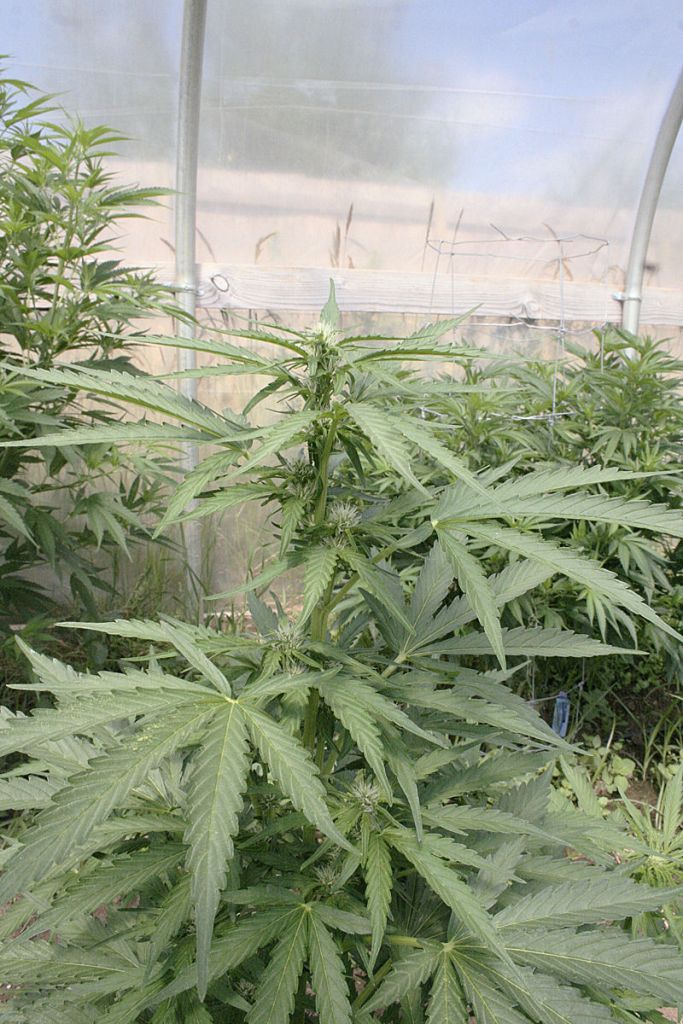Measure 119 would allow pot workers to unionize
Published 12:23 pm Friday, October 25, 2024

- A measure on November's ballot would allow Oregon cannabis workers to unionize.
Three million Oregon voters could decide the future of the 7,000 workers in the state’s cannabis industry. Ballot Measure 119 would ensure that cannabis workers could unionize.
Oregon’s largest private-sector union, United Food and Commercial Workers 555, pushed the 2023 Legislature to pass such guarantee. That failed.
The union then tried to recall Rep. Paul Holvey, D-Eugene, from office because he’d let the union’s HB 3183 die. Holvey feared the legislation conflicted with federal law.
The recall failed. Holvey’s constituents voted overwhelmingly to keep him in office. He has now decided to retire from the Legislature.
UFCW came back with Initiative Petition 35, an updated version of their legislative proposal, and collected sufficient voter signatures to get it on the Nov. 5 ballot as Measure 119.
It would require cannabis retailers and processors to remain neutral when labor unions communicated with employees about their collective bargaining rights. A signed “labor peace agreement” would be required for a business to gain or renew a license from the Oregon Liquor and Cannabis Commission. Otherwise, a business could face fines and license suspension or revocation.
Similar laws have been enacted in several states, including California, New York and New Jersey.
Cannabis businesses operate in a gray area, legal under state law but not federal law.
Among other problems, that has made it difficult for businesses to use traditional checking accounts or credit cards. They often operate on a cash basis, making an enticing target for criminals.
The backers of Measure 119 say unionizing would improve safety and other workplace conditions. But due to the federal prohibition on cannabis, some businesses contend federal worker-protection and labor-organizing regulations don’t apply to them.
Oregon Sen. Ron Wyden, who chairs the Senate Finance Committee, was among top Democrats who reintroduced legislation this year to decriminalize cannabis at the federal level. Sen. Jeff Merkley is a co-sponsor. The legislation languishes in Congress.
Measure 119 is endorsed by the Democratic Party of Oregon, Democratic politicians, the Working Families Party, state Labor Commissioner Christina Stephenson, labor unions and progressive organizations.
The Taxpayers Association of Oregon filed the lone opposition argument in the Voters’ Pamphlet, saying it’s already difficult for legal marijuana shops to compete against the black market. Measure 119 would only strengthen that illegal drug trade.
“Shop owners and staff should work out their concerns without using the government to choose a favorite side,” the association said.
Oregon’s legal cannabis sales have declined since the pandemic and prices have fallen. As of early 2024, more than 7,300 people worked in the industry, according to the Employment Department. Their average annual wage was $37,000.
According to the cannabis technology company Headset: “When comparing Oregon‘s market to other states, it’s evident that Oregon maintains one of the lowest average item prices, which stands at $13.57, compared to states like New York and Ohio where the prices are $35.94 and $38.27 respectively. This could be attributed to Oregon‘s earlier legalization and mature market, leading to higher competition and price compression.”
Dick Hughes has been covering the Oregon political scene since 1976. You can contact him at TheHughesisms@gmail.com, Facebook.com/Hughesisms or X.com/DickHughes.





